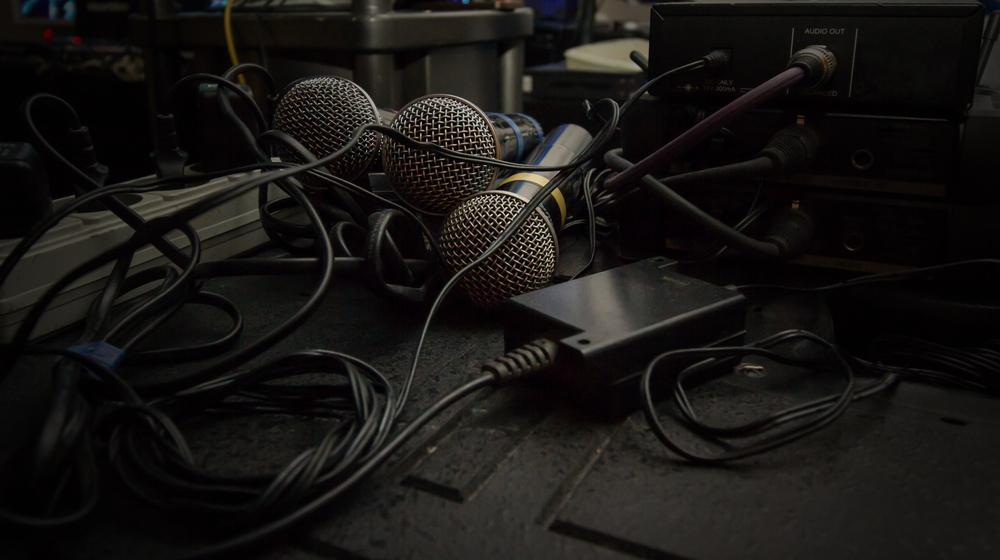10 Tips to Succeeding in the Music Industry

10 Tips to Succeeding in the Music Industry Today
The music industry is a very difficult place to succeed in. There are tens of thousands of artists out there, and only a few successful artists will ever be able to make it big.
In order to stand out from the crowd and have a successful career, you need to take some time to learn about how the music business works, and what your options are when it comes to building a sustainable career.
Whether you want to be a music producer, a professional songwriter, or you want to work as a sound engineer, here are 10 tips on how best to do that.
1. In the Music Business you need to be persistent and never give up
First things first: don’t give up. Successful musicians became just that because they didn’t quit at the first hurdle, when things got difficult and overwhelming. Failure is just another opportunity for success.
Don’t be afraid to ask for help or advice from established artists who have been through what you’re going through now.
2. Don’t believe in overnight success stories
In the music industry, it’s easy to fall into the trap of believing that overnight success stories are the norm. There are countless stories about artists who have seemingly come out of nowhere with a hit single or album. In reality, though, this didn’t happen.
Take a look behind the overnight success, at the years prior to it where they grafted hard, learned their trade, and never gave up.
The truth is that every successful musician has worked very hard for their achievements; they didn’t just get lucky one day and then coast through life on their fame or money. It takes many years of hard work for any artist to earn recognition from their peers and fans.
3. Stand out from the crowd
How do you succeed in the music industry? By standing out from the crowd. Here’s some tips on how:
Don’t be afraid to be different
You don’t want your music to sound like something that can already be heard on radio stations, or played at parties and local clubs. If you want to succeed in this industry, you need something unique about your sound and style, even your music videos.
Your goal should be for people who hear your songs for the first time to be stopped in their tracks because they’ve never heard anything so fantastic like it before, and instantly become new fans.
Don’t be afraid to take risks
Creative freedom is an a crucial component of being successful in music. If everyone was too afraid to take risks, we’d still be listening to acapella tracks from third-century B.C Greece.
Where can you take risks?
- Take chances with your songwriting process and try something new – just look to Taylor Swift for inspiration
- Experiment with different instruments
- Write lyrics that no one else has written before
- Incorporate new sounds into each track so they don’t all sound similar
- Use different content and genres for each song instead of sticking with one genre throughout an entire album
4. To have a successful music career, build connections and personal relationships with real people
Building new connections with real people is the most important part of this industry, especially if you’re hoping for long term success. You simply can’t do it alone.

You need to network with other professionals in the industry, as well as connect with your fan base and collaborate with other artists. Networking is one of the most important things you can do to build your reputation and find new opportunities.
How do you begin to network? Go to live gigs, events and conferences, join industry associations and forums, connect with people on social media, or attend networking events. You never know, you might meet someone who knows someone who works at a big record label, and they could put you in touch…
5. Successful artists cultivate a loyal audience (it doesn’t have to be a huge audience)
The music industry has changed a lot over the years. The way we listen to and access music has evolved dramatically, but the most significant change is the way we discover and engage with new and upcoming artists.
We used to rely on radio, TV shows like MTV or VH1 and magazines like Rolling Stone for music marketing. Nowadays, it’s all about social media sites.

Twitter, Facebook and Instagram are three of the biggest platforms where people find out about new artists – and that puts a lot of pressure on musicians to build their fan base online. Luckily there are some simple things you can do right now that will help you promote your own music and meet potential fans where they already exist – in front of their screens:
Engage your early fans
One of the best ways to build a fan base is by engaging with your early fans. Give them a reason to stick around and continue following you, and they’ll be more likely to become loyal long term followers who will help you grow.
To do this, ask for feedback on your music and show that you’re willing to listen. Don’t just post your music once every couple of months online hoping people will remember how great it was. Send out updates regularly so that fans can see what’s going on behind-the-scenes. Connect with them on social media (and actually respond), or create unique experiences like meetups where your fans can come together in person.

Know who you are and who your target audience is
You need to know who you are and what your target audience wants. This is the first step in building a fanbase and creating an engaged community that supports you. Your music should reflect who you are as an artist, including what kind of message or emotion it conveys and how it’s presented.
Use offline marketing strategies for music promotion
To get your music out there, you’ll also want to use offline marketing strategies as well. These can be as simple as attending local events and concerts, or getting involved in your local music scene. This can help build your community and make people aware of who you are.
6. Never stop learning – take online music courses
Taking online music courses is a great way to curate a long term career in the music industry. Whether you’re wanting to create music professionally, or work on the music industry side, learning new things and expanding your knowledge about the music industry is going to help you go far.
Plus, with the added bonus of being able to learn at your own pace and in your own time, online music courses are a great way of expanding your skillset.
Here at Elevate by ICMP, for example, we have a wealth of online courses and music lessons for you to choose from, including songwriting courses, music production courses, soundscape composition, guitar courses, and so much more.
7. Learn as much as you can about the music business
The music industry is one of the most competitive industries in the world. To get a leg up, try to learn as much as you can about the business, it really will stand you in good stead so you’re not going into things blind.
Here are some things to consider:
- Learn about the different roles in the music industry and what each role does. These can include music producers, sound engineers, managers and agents etc.
- Learn about contracts and agreements. Don’t let someone else act solely on your behalf (e.g. an agent), you want to know about these things because the only person who truly has your best interest at heart is you. For example, it’s important that you know what rights you have when it comes to contracts with recording labels or publishers – this could help protect your interests if something goes wrong during negotiations.
8. Be open minded and ready to learn new things
If at first you don’t succeed… try new things in order to get better.
For example: try out different instruments, write lyrics by taking walks around town instead of sitting down at a desk with pen and paper (or laptop), record songs onto old-fashioned cassette tapes instead of using computer software, incorporate exotic soundscapes into your music.
The music industry is constantly changing, so as the old saying goes, if you can’t beat them, join them. What’s the worst that could happen? You get discovered?
9. Don’t quit your day job, at least not yet
Yes, you love music, and yes, you want to make a success in the music industry, but it’s easy to get ahead of yourself and quit your day job before you actually have an established plan, or next steps sorted.
While it’s tempting to quit everything right away and fully commit to your music career, that isn’t always the best decision. Have a backup plan in case things don’t work out as planned, those bills aren’t going to pay themselves.
10. Take care of yourself
The music industry is a stressful place, so make sure you take care of yourself while you’re in it. That means eating right, exercising, getting plenty of sleep and taking time off when you need it.
It also means taking care of your mental health by talking to friends and family regularly, avoiding isolation, perhaps meditation to calm an anxious mind, and surrounding yourself with positive influences.
Conclusion
Your career in the music industry is a marathon, not a sprint. You can’t give up when you don’t see immediate results, it takes time for your hard work to pay off. If you want to succeed in this business you have to be willing to work hard and stay dedicated.

The music industry is a tough place, but with the right attitude and work ethic, you can find success. Remember that it’s not an overnight process, so be patient with yourself as you work towards your goals.
From the blog

Rockstars in Training: The Best Kids’ Electric Guitars for 2024

Redefining Your Riffs: How Electric Guitar Strings Shape Your Sound


